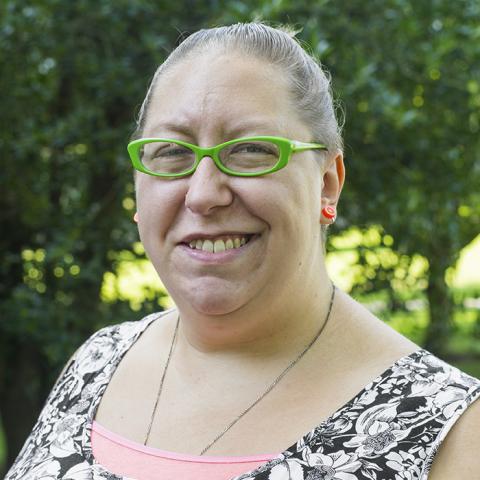Libraries Workshop Series: Tools and Strategies for Online and Hybrid Teaching

Details
Resources for the fall semester.
Throughout August the Libraries will hold a series of discussions on tools and strategies--some featured in the library toolkits initiative (and found in the Knowledge Base)--that relate to teaching and research in hybrid or online classes. Using a problem-based approach, we'll present ideas for close reading, using primary sources, creative solutions for digital whiteboards, building digital exhibits, incorporating open science practices into teaching and research, and critical thinking for research. In addition to recommending tools and possible approaches, we welcome your ideas and the opportunity to discuss where these tools fit with your teaching goals for the fall semester. Flyer is available here, and full schedule is below.
Using primary sources (and new primary source packets) in digital/hybrid classes
How can you incorporate primary sources into a digital/hybrid class? What resources are available to do this? Learn about new primary source packets designed to support teaching and learning, as well as other options for engaging with primary sources, including virtual appointments and video tours.
Led by Sarah Horowitz
Thursday, August 6 at 1:00pm
Tools for Close Reading
Digital and hybrid classrooms create new modes and opportunities for class discussion around a common source. Using annotation tools with digitized texts or visual resources, students can still engage with primary sources in meaningful ways and employ close reading techniques to reach deeper understandings of audience and authorship. We’ll discuss a variety of simple tools that facilitate close reading in synchronous and asynchronous formats.
Led by Mike Zarafonetis
Monday, August 10 at 11:00am
Introducing Open Science Practices into Instruction and Research: A Conversation with Richard Ball, Ben Le, and Norm Medeiros
The panelists will discuss methods they have employed to introduce open science practices such as reproducibility and pre-registration into empirical projects at the undergraduate and thesis levels. Participants are encouraged to share their own experiences as part of this discussion-oriented session.
Coordinated by Norm Medeiros
Tuesday, August 11 at 1:00pm
Meeting ID: 956 6956 8894
Passcode: 042397
Building context for student research: developing critical thinking
How can your students identify the current scholarly literature concerning their research questions? How can they develop sufficient background providing a context for shaping their questions and determining what is significant and relevant? Librarians have created tutorials for literature reviews, cited reference searching and other resources that engage students with current research. What kinds of critical thinking and resources will inform your students’ work?
Led by Margaret Schaus
Wednesday, August 12 at 11:00am
Collaboration and Discussion in Slack
Slack is a messaging, chat, and collaboration tool seeing growing use in academic and corporate settings. By creating a self-contained “team” for a class, it is possible to facilitate synchronous and asynchronous conversations, share media and documents, and organize communications through the use of “channels.” It also facilitates coordination of group projects in scenarios where in-person meetings are difficult or impossible. In this workshop, we will share examples of successful use of Slack in the classroom and beyond, and discuss ideas for using it in your classroom.
Led by Mike Zarafonetis
Thursday, August 13 at 11:00am
Digital exhibits with primary sources
Are you interested in having students work in-depth with primary sources? Not sure what options are available for digital/hybrid classes? Thinking about options for students to present their work to a wider public in the digital realm? Join us for a discussion of the pedagogy of online exhibits, including examples of past class exhibits.
Led by Mike Zarafonetis and Sarah Horowitz
Friday, August 14 at 11:00am
Collaborative Annotation and Analysis of Course Readings
As part of several courses, Jake Culbertson (Anthropology) asks his students to contribute to a collaborative spreadsheet of the people, places, key topics, and debates that students encounter in course readings. This provides a tangible task for students as they read, to highlight significant ideas and entities, and to report their results to the class. The spreadsheet provides a common pool of references to significant information that can be used for papers and class discussions. The spreadsheet also provides opportunities to discuss how best to transform the information in the texts into structured data. With the spreadsheet and Palladio, students can create maps, graphs, and facets that allow them to identify significant patterns and features in their data. We’ll discuss this spreadsheet exercise as a model of project-based collaboration with outcomes that benefit students' engagement with readings and builds an ongoing shared knowledge base for faculty research.
Led by Andy Janco
Monday, August 17, 11am
Digital Whiteboards
How do we bring the chalkboard online with us when teaching hybrid and online classes? This workshop builds on the experiences of Haverford faculty using a range of collaborative digital whiteboards. Digital boards offer new ways to engage students during lectures, in group activity and class exercises. Participants will gain perspective on how various options compare to one another and criteria to assess which solutions best support their teaching and learning goals.
Led by Andy Janco
Thursday, August 27, 11 am




